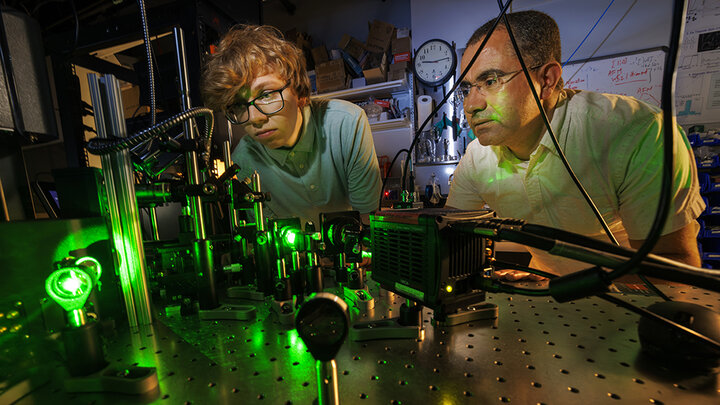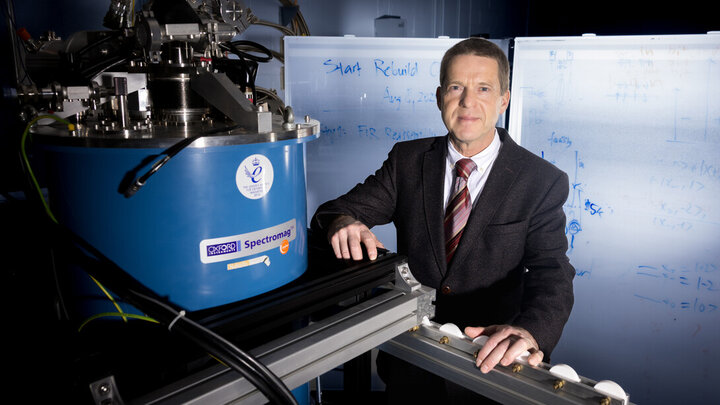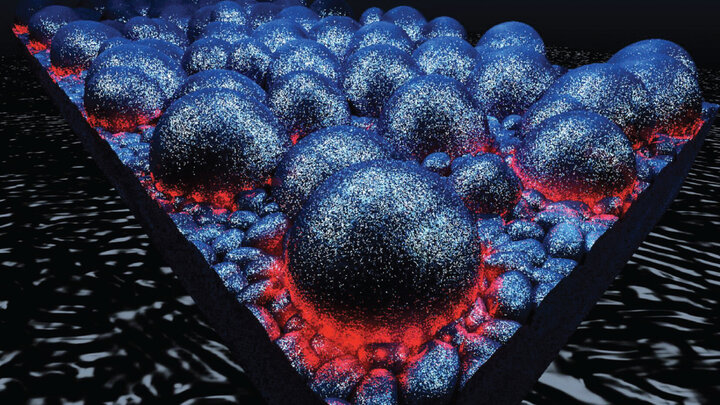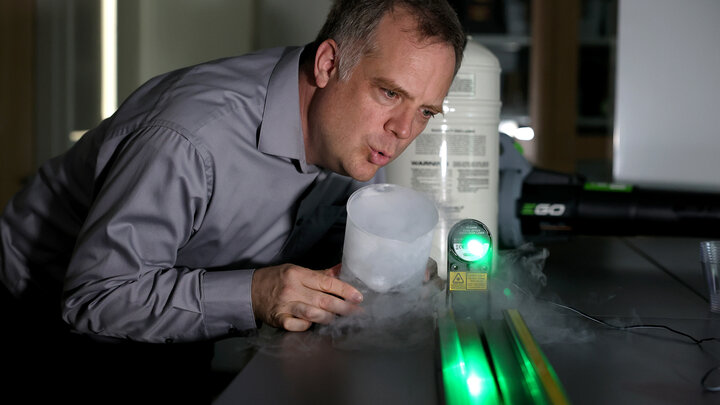By looking to create quieter environments, a team led by Nebraska Engineering researcher Abdelghani Laraoui hopes to take a bit of the “noise” out of quantum computing and help make emerging technology more efficient, accessible, and feasible. The goal is to find materials that show potential for improving the performance of quantum computers, which can be utilized to control the disruptions – also known as decoherence (or noise) – that keep these superfast computers from performing at their best. Unlike classic computing systems, quantum computers have no memory or processors but instead use superconductive subatomic qubits, which store and process information and are ideal for higher-level tasks – such as running simulations and analyzing data – with superfast speed and precision. But, Laraoui said, quantum computers often need an extremely cold environment around 10 mK (equivalent to – 459 Fahrenheit) to perform well with lower error rates. Laraoui is collaborating with Wichita State University researchers on a three-year, $800,000 Track 1 award from the National Science Foundation’s Expand Capacity in Quantum Information Science and Engineering (ExpandQISE) program.
October 19, 2023

Abdelghani Laraoui (right), assistant professor of mechanical and materials engineering, and Ben Hammons, a first-year student in electrical and computer engineering, adjust a laser in Laraoui's Quantum Sensing & Defect Discovery and Spectroscopy Lab.
Craig Chandler | University Communication and Marketing



